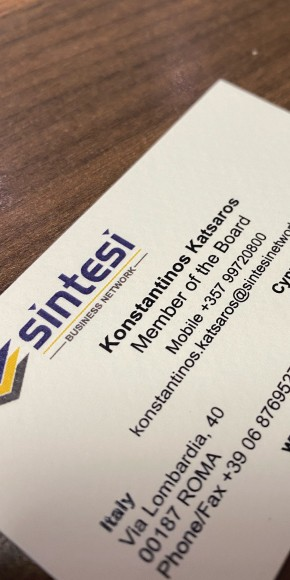Newsletter No.16 \ 20 July 2022
By Vaso Simits
ATAD (Anti-Tax Avoidance Directive) III OR UNSHELL
A proposal for the issue of a new Directive, has been published by the European Commission, with the aim of ending the use of complex corporate structures by using companies which do not perform any actual economic activity and/or lack a minimum economic substance, known as Shell Companies. The proposed directive, known as ATAD III or UNSHELL, is targeting to achieve a transparent economic framework between Member States by preventing, inter alia, the use of Shell Companies for tax avoidance or tax evasion purposes.
The proposed new Directive determines three indicators that will be used for identifying the companies that may not comply with the minimum requirements of economic substance. Such indicators are based on the income and/or assets and/or place of management and/or decision making of the companies.
Minimum Substance requirements:
1. Activities of such shells and the income they receive, are the main factor of detecting the substance in their existence. Particularly, if more than 75% of the overall revenue of the shell company in the previous two tax years does not derive from the trading activities of the shell company, or in case where the 75% of its assets are either real estate property or private property of high value
2. Cross- border dimension shall be activated in the second step. Particularly, the next indicator is whether the company’s majority of income through transactions is associated with another jurisdiction or passes such income to another jurisdiction
3. Third and final indicator is whether the day-to-day operations and decision making is outsourced to a third parties.
The aforesaid indicators shall be considered and met cumulatively for a company to be deemed as shell company. In case a company falls into the abovementioned requirements, a reporting obligation arise in relation to their yearly tax return. In such case, companies which are considered to have a reporting obligation, will not be able to be relief form taxes or enjoy the benefits of the tax treaty network of its Member State and/or to qualify for the treatment under the Parent-Subsidiary and Interest and Royalties Directives. This is because the Member State in question would be able to take action against the shell company, and such action may involve the refusal of issue a tax residence certificate, tax benefits may be denied and shell entities may be unable to claim double tax relief in other jurisdictions.
Companies listed on regulated markets, regulated financial undertakings and undertakings with at least five of their own full-time equivalent employees or members of staff carrying out the activities which generate the relevant income, are considered to be low risk undertakings and therefore are excluded from the field of the Directive.
Furthermore, the draft Directive provides also for a right to rebuttal. In other words an undertaking which has been considered as a shell company and disagree with such decision, has the right to impugn such decision by providing the relevant documentation and evidence.
A climate of cooperation between Member States is deemed necessary for the purposes of Directive. Particularly, Member States have to cooperate with the above initiative, for example by not issuing tax certificates, or in such case the certificate will clarify that the company is a shell. Furthermore, Member states shall proceed by applying tax to payments to third countries, whereas inbound payments shall be taxed in the state of the shareholder of the shell company.
Importantly, Member States will have the right to request from another Member State to proceed by conducting a tax audit in regards to any entity, which will be requested by the other Member state, and such tax audit shall be provided by the other Member State in a reasonable time frame. In this regard, it goes without saying that a spirit of cooperation between the Member States shall be present in order for the directive to be successfully effective.
The proposed Directive is currently being discussed by the Member States at an EU level. In fact, the Cyprus Fiduciary Associations is in direct contact with the Ministry of Finance and has already submitted relevant comments for consideration.
The proposed Directive shall be implemented by Member States, under the spirit of cooperation, by 30 of June of 2023 and be effective from 1st of January 2024.



























